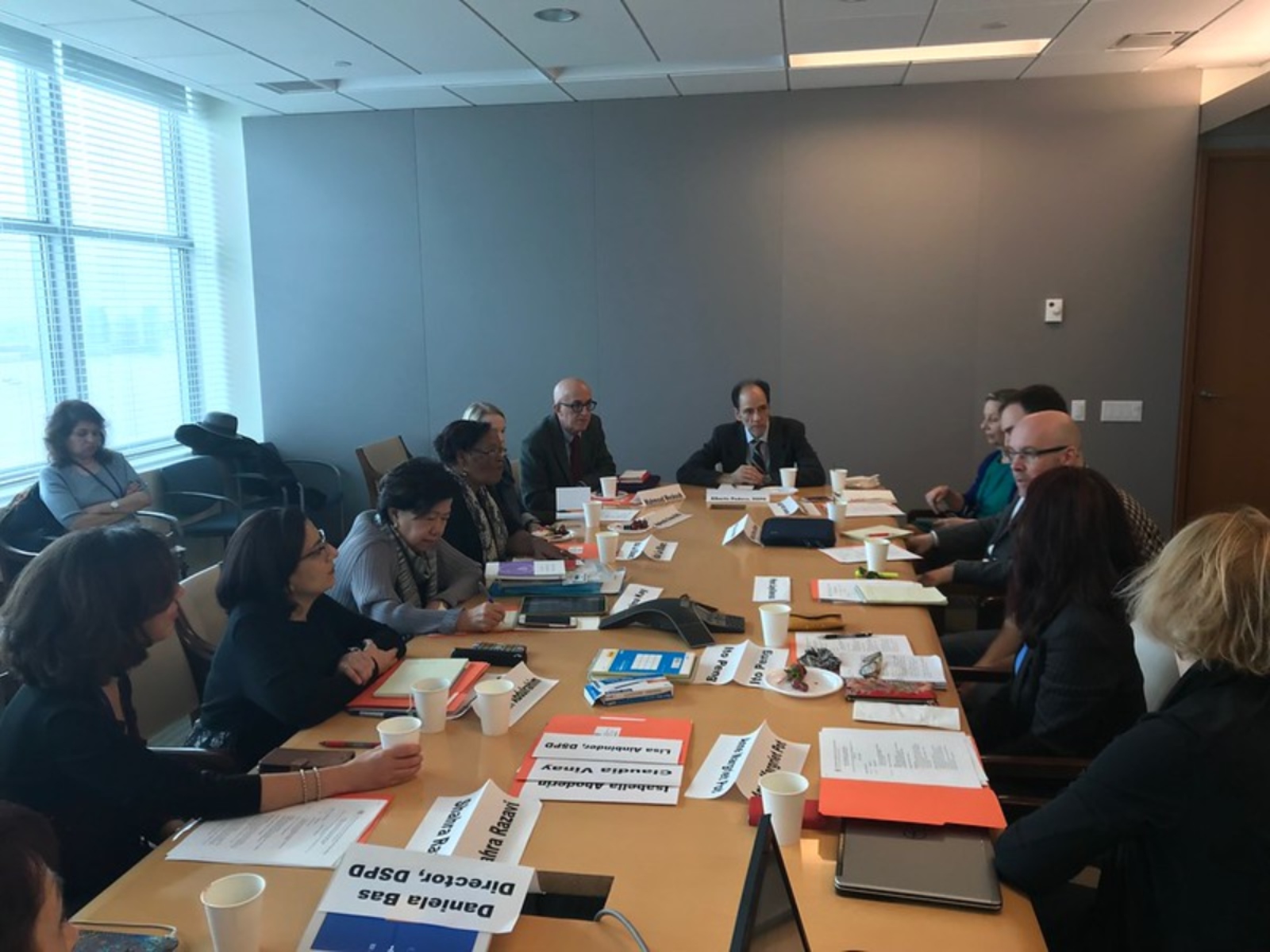
Expert Group Meeting on Care and Older Persons: Links to Decent Work, Migration and Gender 5-7 December 2017 United Nations Headquarters, New York Secretariat Building, Conference Room S-2725
Ageing is one of the “mega-trends” that are likely to condition the prospects for achieving the 2030 Agenda and its Sustainable Development Goals (SDGs). In 2017, there are an estimated 962 million people aged 60 or over in the world, a population that is growing faster than all younger age groups. Over the next few decades, the increase in the numbers of older persons is almost inevitable, with a projection to reach 1.4 billion in 2030 and 2.1 billion in 2050.
With increasing age and longevity, most older persons–especially those aged 80 and above–will eventually require care services. Care and support services and the manner in which they are provided are vital to maintaining the health, quality of life and independence of older persons and to fostering their social integration. However, 48 per cent of the global population is not covered by any national legislation on long-term care, and 46 per cent is subject to means-testing which makes coverage available to older persons only when they live below the poverty line.
Most older persons are thus excluded from long-term care services, with long-term care systems characterized by extremely low levels of public expenditure, high out-of-pocket costs, and shortages of formal care workers. Yet according to a 2015 report of the International Labour Organization, the care economy is one of two commonly-identified sources of future job growth in both developing and industrialized countries (the other being the green economy). Despite such immense growth in this field, insufficient attention has been given to the social dimensions of care for older persons, especially as regards links to decent work for care workers and the rights of care recipients, migration of care workers, and the gendered aspects of care work, as well as the affordability of care services.
The meeting will bring together a small group of international experts to discuss and explore the issue of care for older persons, and to deepen understanding of the links between care and decent work, gender, labour migration and human rights, as well as their implications for social policy.
Final Report of the Expert Group Meeting
Papers
- Elderly Care Work and Migration: East and Southeast Asian Contexts – Ito Peng
- Growing demand, precariousness and austerity: The long way to universal and quality long-term care in Europe - Borja Arrue Astrain
- Care migration in CEEC_Agnieszka - Agnieszka Sowa-Kofta
- Towards Caregiving As Decent Work – Thelma Kay
- Long Term Care for Older People: The Role of Unpaid Care Work - Shahra Razavi
Presentations
- Healthy Ageing and the need for long-term care systems: accessibility, sustainability, quality and ageism – Anne Margriet Pot
- Long-term care for older persons: sub-Saharan African realities – Isabella Aboderin
- Long Term Care for Older People: The Role of Unpaid Care Work – Shahra Razavi
- Unpaid family care for older people in low and middle income countries – Peter Lloyd-Sherlock
- Why unpaid female labour matters: how to use time use studies to evaluate it – M. Messkoub
- Women’s Economic Empowerment, Ageing and Unpaid Care Work – Claudia Vinay
- Care and Decent Work: Preparing Caregivers for the Future of Work – Ida Le Blanc
- Long-term Care in Europe: Precariousness, growing demand and austerity – Borja Arrue Astrain
- Towards caregiving as decent work-Work – Thelma Kay
- Elderly Care Work and Migration: East and Southeast Asian Contexts – Ito Peng
- Central and Eastern European countries in the migrant care chain – Agnieszka Sowa-Kofta
- Gender, Migration, and Elderly Care in Lebanon – Sawsan Abdulrahim
Resources
 Welcome to the United Nations
Welcome to the United Nations